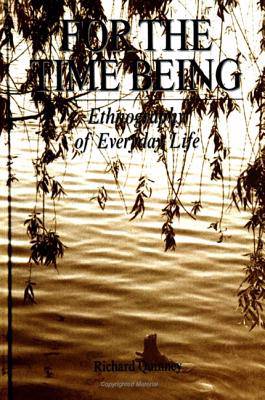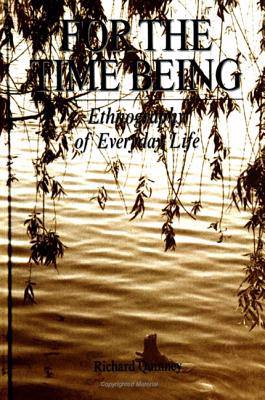
- Retrait gratuit dans votre magasin Club
- 7.000.000 titres dans notre catalogue
- Payer en toute sécurité
- Toujours un magasin près de chez vous
- Retrait gratuit dans votre magasin Club
- 7.000.000 titres dans notre catalogue
- Payer en toute sécurité
- Toujours un magasin près de chez vous
145,45 €
+ 290 points
Format
Description
This book from start to finish is a study in the passing of time. And it is the passing of the writer in the course of time. We who remain as readers--you and I--imagine another time and another place. We then move on to what is to come next. An artifact of a lived experience, this is a document of a life lived in the course of a decade. The writing--the process of writing--was part of the living. In some cases, the writing was the living, and made the living possible. Throughout the book are lines from W. H. Auden's oratorio poem titled "For the Time Being." As a mantra that runs through the book: The time being is all the time we have. It is the most trying time of all. We seek daily to redeem it from insignificance. Thus the attention given to this everyday life. There is little concern here for the boundaries of disciplines. An ethnography of human existence, an existence itself beyond boundaries, necessarily covers the territory of religion, philosophy, literature, the environment, visual arts, music, drama, literary criticism, sociology, and the psychology of the self. In other words, disciplinary boundaries are broken and transcended. Just as in real life, just as in autobiographical ethnography. Quinney ends this journey with a requiem, a requiem for the living and the dead. The hope is that one has lived a good life. In some ways the requiem is a reprise of what has gone before. It is a mediation of this life, a reflection and a source for the life that remains. Even as we live this moment, a requiem is playing in the background. A music that assures us that we live, and a music that makes us grateful for this life. This everyday wondrous life. For the time being is everything.
Spécifications
Parties prenantes
- Auteur(s) :
- Editeur:
Contenu
- Nombre de pages :
- 198
- Langue:
- Anglais
Caractéristiques
- EAN:
- 9780791438510
- Date de parution :
- 17-09-98
- Format:
- Livre relié
- Format numérique:
- Genaaid
- Dimensions :
- 152 mm x 229 mm
- Poids :
- 571 g







